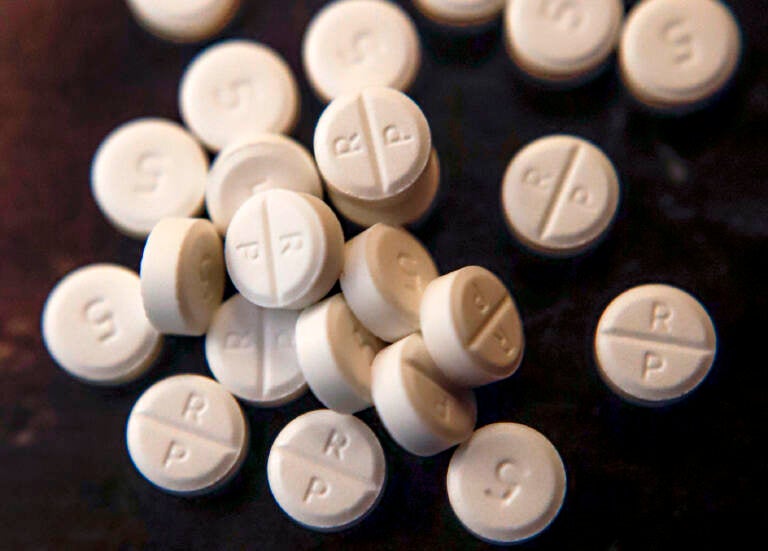Native American tribes reach $590M settlement over opioids
A federal court filing made Tuesday in Cleveland lays out the details of the settlements with drugmaker Johnson & Johnson and distribution companies.

This June 17, 2019, file photo shows 5-mg pills of Oxycodone. (AP Photo/Keith Srakocic, File)
Native American tribes in the U.S. have reached settlements over the toll of opioids totaling $590 million with drugmaker Johnson & Johnson and the country’s three largest drug distribution companies, according to a court filing made Tuesday.
The filing in U.S. District Court in Cleveland lays out the details of the settlements with Johnson & Johnson and distribution companies AmerisoruceBergen, Cardinal Health and McKesson.
All federally recognized tribes will be able to participate in the settlements, even if they did not sue over opioids. Many tribes have been hit hard by the addiction and overdose crisis across the U.S. One study cited in the settlement found that Native Americans have had the highest per capita rate of opioid overdose of any population group in 2015.
More than 400 tribes and intertribal organizations representing about 80% of tribal citizens have sued over opioids.
Under the deal, New Jersey-based Johnson & Johnson would pay $150 million over two years and the distribution companies would contribute $440 million over seven years. Each tribe could decide whether to participate.
The newly announced deals are separate from a $75 million one the Cherokee Nation and the three distribution companies reached last year ahead of a trial.
The same four companies are nearing the final stages of approval of settlements worth $26 billion with state and local governments across the U.S. They have until later this month to decide whether enough government entities have signed on to continue in the deal.
The tribal settlements are part of more than $40 billion worth of settlements, penalties and fines rung up over the years by companies over their role in opioids.
The drugs, including both prescription drugs such as OxyContin and illicit ones including heroin and illegally made fentanyl, have been linked to more than 500,000 deaths in the U.S. in the past two decades.

Get daily updates from WHYY News!
WHYY is your source for fact-based, in-depth journalism and information. As a nonprofit organization, we rely on financial support from readers like you. Please give today.




